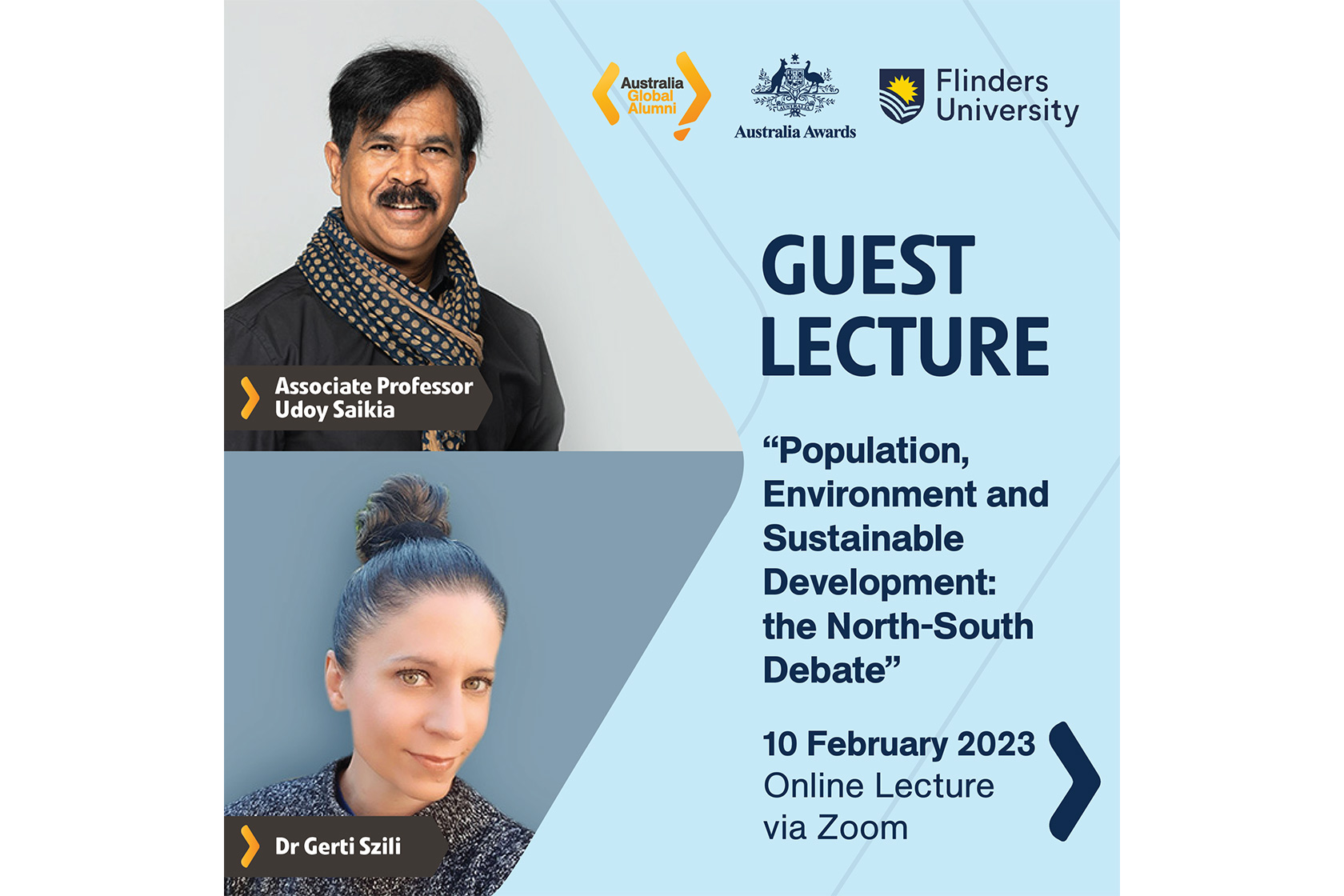
24 November 2025
Join Our Lecture on ‘Seeing, Supporting and Empowering: Inclusive Education for Neurodivergent Learners’
How can schools create learning environments where every student, especially neurodivergent learners... Read more
The Australia Awards are prestigious, transformational scholarships and short courses offered to emerging leaders for study, research and professional development in Australia

01 February 2023
 Join Our Lecture on “Population, Environment and Sustainable Development: The North-South Debate”
Join Our Lecture on “Population, Environment and Sustainable Development: The North-South Debate”
Are you interested in learning the intricate relationship between population and global environmental degradation? Join our online lecture on Friday, 10 February, from 2:00 pm to 4:00 pm Jakarta time and gain insight into the topic with Associate Professor Udoy Saikia and Dr Gerti Szili from Flinders University.
The latest United Nations projection shows that the world population will be 10.4 billion in 2100. This means we will add 30 per cent more people to our current global population. Most of this increase will occur in developing countries, specifically in Sub-Saharan Africa. While population growth is considered a primary reason for global environmental degradation, can we blame developing countries for contributing to such degradation? This is a highly debatable question and needs to be addressed in conjunction with various other crucial dimensions, including the debate surrounding the concept of sustainable development, which is usually missing in this debate.
This lecture presents the population-environment debate within sustainable development. It highlights the importance of addressing the differential in “consumption” between developed and developing countries to understand the complex relationship between population and environment.
The e-certificate for participation is available. If you are interested in attending this event, RSVP by 8 February at this link. Click here for more information about the online lecture, Associate Professor Udoy Saikia, and Dr Gerti Szili.
Share this news on:
 Related News
Related NewsThis website uses cookies to improve your website experience. We may also use cookies to analyse website data so that we can improve our online services. To find out more visit our privacy policy.
